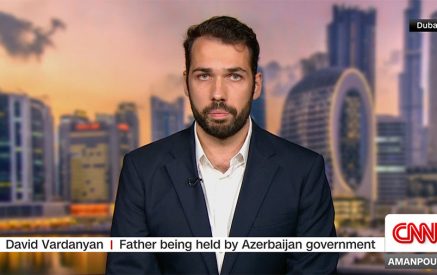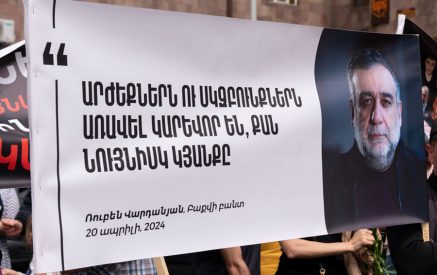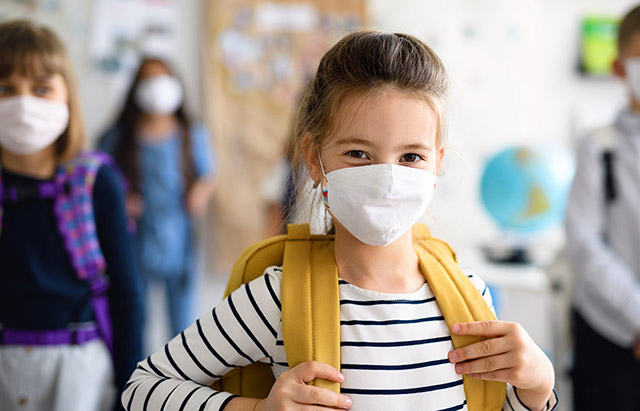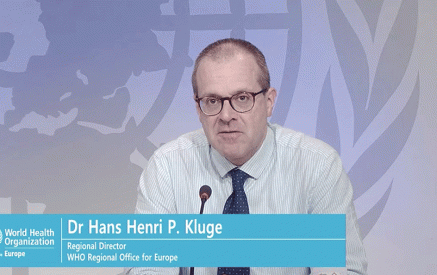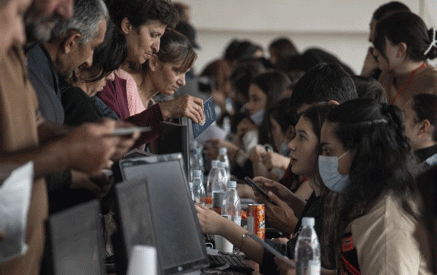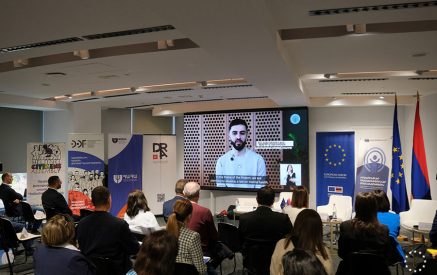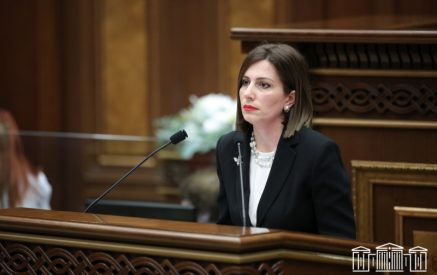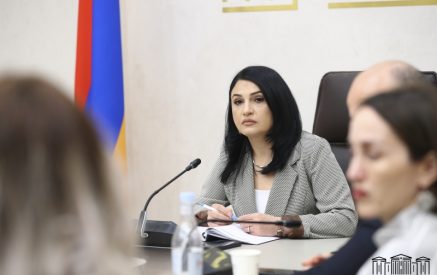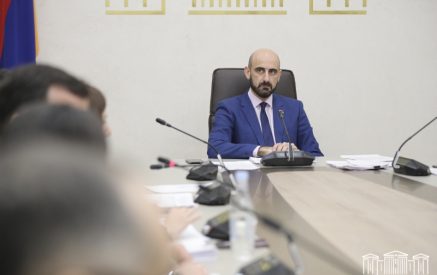WHO/Europe and Greece launch new joint agreement for 53 countries in Europe, Central Asia
Today, the Ministry of Health of the Hellenic Republic and the WHO Regional Office for Europe launched a new programme to support and promote the quality of mental health care of children and adolescents in all 53 countries of the WHO European Region.
Launched at an official ceremony held at the Hellenic Ministry of Health and marking the opening of the new WHO Quality of Care Office in Athens, the programme is the result of ongoing partnership and collaboration between WHO/Europe and the Government of Greece across the health system spectrum—including the important area of quality of care and patient safety.
Read also
Childhood and adolescence are critical stages of life for mental health, as this is a time when rapid growth and development take place. Unfortunately, the mental health of children and young people in WHO’s European Region has been under significant strain in recent years, first because of the COVID-19 pandemic, and now for the millions of children currently affected by the humanitarian crisis in Ukraine. During the pandemic, school closures and lockdowns left children isolated, away from their peers and unable to optimally socialize and grow.
“Mental health and well-being is a fundamental human right that should be at the heart of our health systems and key to recovery from the COVID-19 emergency. The pandemic has affected everyone in society, but the most vulnerable, including children and young people, have suffered the most,” WHO Regional Director for Europe, Dr Hans Henri P. Kluge, said. “The new programme we are launching today, in partnership with the Government of Greece, will support millions of children and young people across our Region with concrete steps and solutions to improve and promote their mental health and the quality of mental health services available to them. This, in turn, will lay a strong foundation for broader health and well-being across the entire life cycle.”
“As we recover from the COVID-19 pandemic, we find ourselves in a position of unparalleled opportunity. This is the opportunity to prepare for the future resilience of our health systems,” said Athanasios Plevris, Minister of Health of the Hellenic Republic. “Our greatest virtue is our health. And I am proud to see that the quality of health services is placed at the heart of our agenda.”
Building strong and high-quality mental health services for generations to come
The new WHO programme will set out a response to the mental health challenges arising from the negative impacts of the pandemic, while also keeping in mind the consequences of the current humanitarian crisis in Ukraine on the mental health of the millions of children and young people affected.
Experiencing armed conflicts, war, forced displacement or family separation can have immense and often long-lasting negative consequences for people’s mental health, especially for vulnerable groups such as children and adolescents.
Problems can arise during safe passage, such as relapse of pre-existing conditions, anxiety or stress about basic needs being met, and the undermining of community support structures, which can prevent traditional ways of coping from being used.
“It is clear that, whether it is because of an unprecedented pandemic, or a sudden humanitarian crisis, meeting people’s mental health needs—especially those of children and young people—must be at the heart of any functioning health system. We look forward to working closely with all 53 countries in our Region to make this a reality,” Dr Kluge said.
Children and adolescents who are happy and confident are likely to carry this into adulthood and more easily build resilience in the face of adversity. However, depression is one of the leading causes of illness and disability among adolescents globally and suicide is the fourth leading cause of death in 15-19-year-olds.
Through the new programme, WHO/Europe will work with countries to improve the mental and emotional health of their younger populations through:
- Support with developing national strategies and frameworks and sharing lessons learned. Many countries have already developed successful approaches, but many require a common platform to share knowledge and expertise. The new WHO programme will better enable this.
- Expertise in translating findings and lessons learnt into practical tools and policies that support children’s and young people’s mental health needs.
- The creation of an inventory of quality of care of children and adolescent mental care systems in Mediterranean and Southeastern Europe.
- The development of a package of tools to measure clinical process against evidence-based standards.
Building on strong partnership and collaboration
Greece is not new to joint initiatives with WHO/Europe in support of mental health care.
In July 2021, WHO/Europe and the Government of Greece co-hosted a high-level summit that culminated with an appeal for mental health to be placed at the heart of the post-pandemic recovery process.
At the national level, Greece has prioritized mental health and has included it in its national recovery plan.
Greece also boasts a significant number of child and adolescent psychiatrists and psychologists, who will contribute to the creation of a network between mental health professionals working in this field and the establishment of solid protocols and guidelines.














































